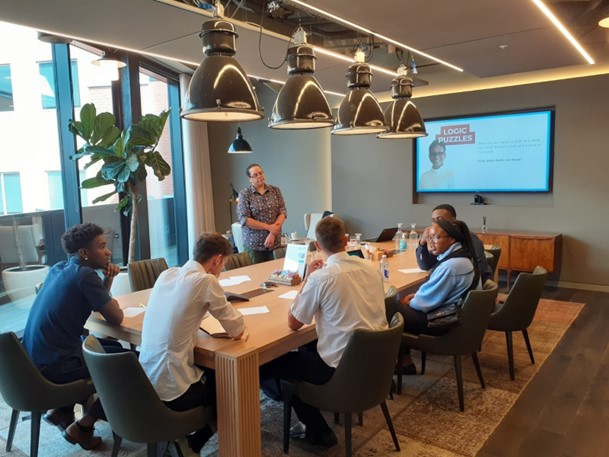What I look for in a direct-to-consumer business
Good reviews, sticky customers, and secret sauce are some of the main things that BGF investor Daina Spedding looks for when considering whether to back a D2C business.

Daina Spedding, an investor in BGF’s London team, has invested in a range of direct-to-consumer (D2C) businesses. She sits on the boards of portfolio companies including Genflow, Moteefe, Spoke and THIS.
1. Buzz
The first thing I look for in a direct-to-consumer business is strong revenue growth that is not entirely driven by marketing spend. It’s common to see businesses throw money at marketing and achieve an amazing growth rate, but often that growth is not sustainable. You need to generate a buzz around your brand and attract organic traffic even early on in your journey.
2. Sticky customers
A successful direct-to-consumer business attracts sticky customers who come back again and again, generating repeat revenue at good margins. To measure a company’s performance, we estimate the average lifetime value of each customer and divide it by what it costs to acquire that customer. This metric is one of the most important indicators for direct-to-consumer businesses.
3. Good customer reviews
It might sound obvious, but a good business is one that gets good reviews. I will always look at sites such as TrustPilot to see what customers are saying. I even look at Glassdoor to see what staff are saying about the company. I have chosen not to invest in a business with great profit margins because the customer reviews were bad. Although fake reviews are a problem with some small businesses, it is harder to cheat at scale, especially for businesses with thousands of reviews spread across more than one channel.
4. Storytelling ability
The management team has to be able to tell their story authentically. That requires demonstrable knowledge of their market and the ability to sell their ideas to a wide range of people including journalists, suppliers, staff and others. I can usually tell within ten minutes of talking to a company founder whether they have this skill. Can it be learned? Yes, with practice and good coaching. Sometimes it helps to be a duo in which one co-founder handles the publicity and the other focuses on operations.
5. Realistic business plan
There must be a clear and compelling roadmap to scale the business and break even, but this plan must be realistic, and it must make sense. A typical warning sign is that revenues are set to grow like a hockey stick while fixed costs stay flat. Often, that means a business has failed to predict that its overheads will rise as it grows. Staff pay is a part of this. When companies start up, they hire people out of passion who love what they’re doing, but as those people mature, they are likely to be poached by other businesses unless pay and benefits match the market rate. Founders may be willing to accept low salaries over a longer period, but you can’t underpay the team or they will leave.
6. Secret sauce
There needs to be a barrier to entry that makes it difficult for others to do what you’re doing. This might be intellectual property that a rival business would have to invent from scratch, or it might be something less tangible, such as good customer service or the ability to create engaging content. Every company has to figure out what is special or unique about it. Often the most valuable thing about a business is its secret sauce.

Which BGF investments have you made that are a great example of the kind of businesses you look for?
One example out of many is plant-based meat brand THIS, which has scaled very quickly, growing at a record-breaking rate of 530% in the year ending April 2021. Although the founders Andy Shovel and Pete Sharman (above) have been successful in raising money, they haven’t overspent on marketing, but instead have invested in research and development to get the product right. People resonate with what they’re doing. The brand has cut through the noise and created a buzz. BGF co-led the company’s recent £11 million investment round, announced in June.
The second example is “femtech” business Elvie, founded by Tania Boler (below). The company has created great momentum behind its products, such as the world’s first silent wearable breast pump. Everybody working on the business is passionate and is able to tell the company’s story authentically.

Looking ahead, are there any sectors, technologies or business models that you are really excited about investing in?
Companies that are working to make the food value chain more sustainable. I’m also interested in green mobility. That includes on-demand and automated services for moving around people and goods. Think zero-emissions vehicles, drone deliveries and alternatives to lorry freight.
A modified version of this article appeared on BusinessLeader.co.uk





